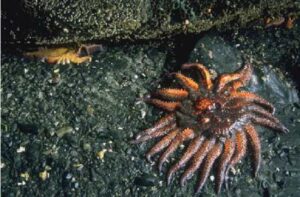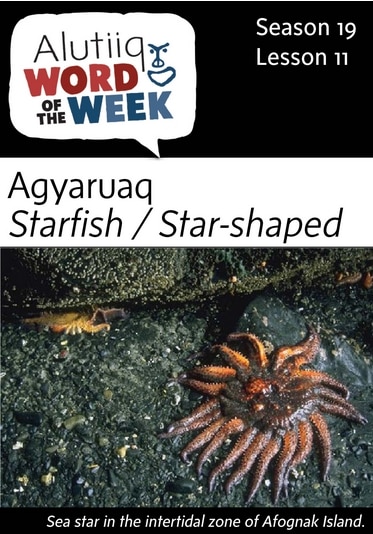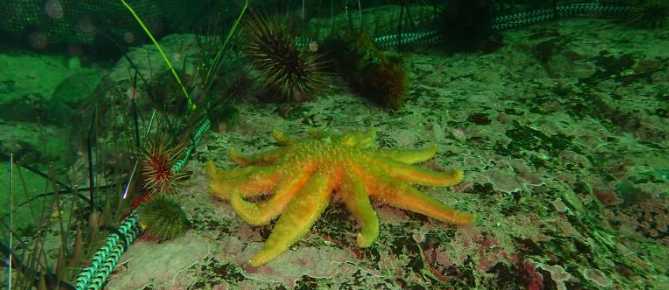
Starfish — Agyaruaq
Agyaruat irurtuut. – Starfish have many legs.
Sea stars, commonly known as starfish, are abundant, colorful residents of Kodiak’s waters. There are numerous species, which can be found in almost any environment–from rocky shores to mudflats, and from tidal pools to deep marine waters. Sea stars are echinoderms–spiny skinned creatures related to sea urchins, sand dollars, and sea cucumbers. They have hundreds of tube feet tipped with suction cups. By pumping water in and out of their feet, sea stars can maneuver skillfully across the seafloor.
Many Kodiak sea stars have five legs like the flat bottom sea star (Asterias amurensis), mottled sea star (Evasterias troscheli), or leather sea star (Dermasterias imbricate). Others, like the sunflower star (Pycnopodia helianthoides) can have more than a dozen. Sea stars are enthusiastic eaters, gobbling up urchins, mussels, clams, crabs, and small fish. They have few predators, but people often consider them a nuisance. They eat up intertidal resources, rob crab pots, and foul fishing gear.
Although some cultures harvest and consume sea stars, Elder Phyllis Peterson reports that Alutiiq people do not. Moreover, she warns people not to touch sea stars, as they can make you itch all over.
The Alutiiq word for sea star–agyaruaq–comes from a word for star–agayaq–and literally means star-shaped. A five-pointed star, or pentagram, is among the petroglyph images at Cape Alitak, and is thought to be up to a thousand years old. It may represent a starfish. Today, people tend to equate this shape with stars in the night sky, but it is unlikely that Alutiiq people thought of it in this way. In Alutiiq cosmology, the stars are beings who gaze down at Earth through holes in the sky world, with one, large, oval eye in the center of their forehead!
[content id=”79272″]




